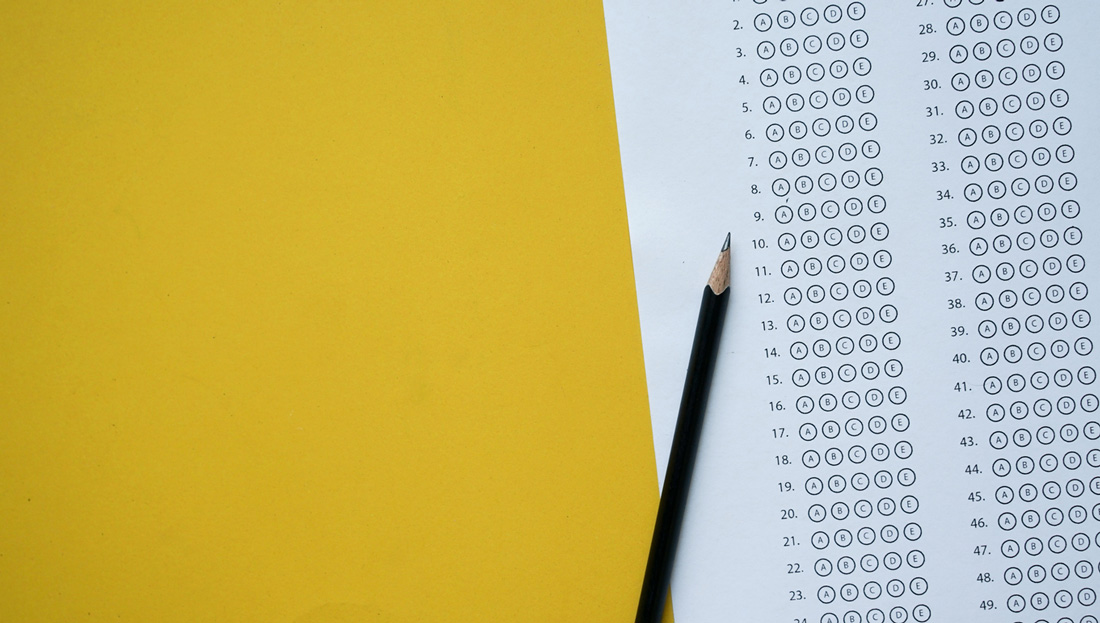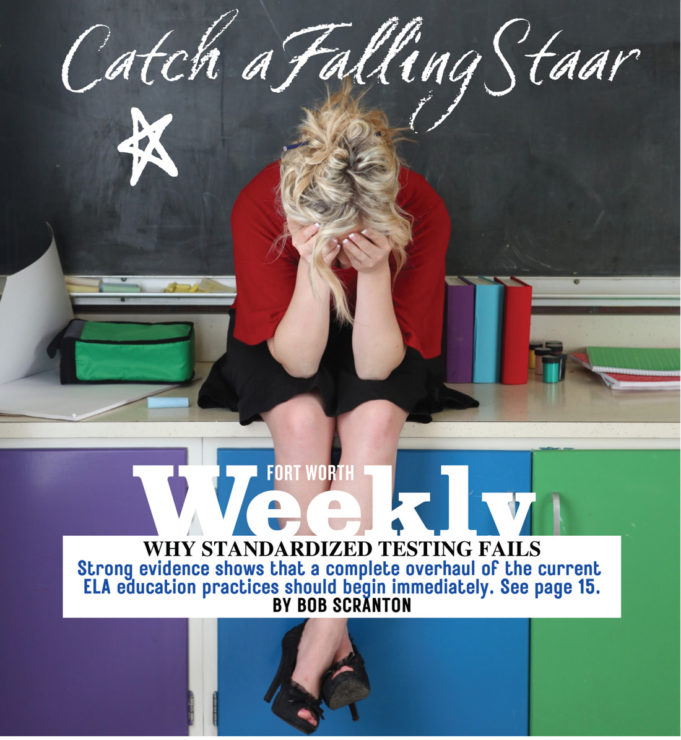In the fourth chapter of Focus: Elevating the Essentials to Radically Improve Student Learning by Mike Schomokr, the author reflects on the current state-mandated curriculum and local teaching practices that damage, hinder, and impede the learning process. Students quite often fail to gain insight into the deeper stratum of knowledge presented because too much attention focuses on terminology, memorization, and testing scores. Strong evidence shows that a complete overhaul of the current English Language Arts (ELA) education practices should begin immediately.
This reorganization has its basis in historical practices existing prior to the acceptance of standardized testing. This reorganization will not, as is shown, be difficult to implement, and, in fact, it could take as little as one semester. Overhauling the ELA education system by moving it toward a truly functioning method of instruction must include several key factors.

Courtesy Amazon
This new system will focus on frequent and diverse reading of texts, the basics of writing, and the analysis of literature for character, theme, and culture. This new system will lead to students coming to understand the many aspects of literature. This new system should also have purpose-driven prompts for reading that guide students toward a deeper understanding not only of the characters present in the novel but also as a way to link the events in the novel to actual-world issues.
Revamping the ELA curriculum so that it is substantive and valuable through these methods brings substance to the ELA programs that make all its aspects hold value, realism, and truth instead of the current illusionary practices that value all show but no substance.

Courtesy iStock
Too long have we ignored our children while we patted ourselves on the back for what we took to be success when, instead, it was abuse. Abuse of our children, abuse of our teachers, abuse of our citizens, abuse of truth, abuse of substance, and abuse of knowledge encompass much of the totality of that which is wrong in current educational trends. It was an abuse born out of fear that far too many politicians and administrators feel when challenged because far too often they have no real understanding, no substance, no knowledge of anything except perhaps doublespeak, though they are in charge, and thus they are incapable of repelling those individuals who would seek to rise beyond their station through trickery and lies–experts.
In the grand tradition of Rasputin, these corrupters of our education system whisper lies, and those in charge obey. Change has been long overdue.
The time has come to cast down the oppressive forces embedded in our schools, in our hearts, and in our minds. We must move to stand in the warm light of the truth that our schools are killing our children and that change must come.
The fact that our education system destroys learning becomes clear when we see that students score well on tests, as they are taught the best methods to choose what answer, yet they cannot read, write, or think critically. The papers students write and the thoughts they express only touch on the surface meaning or mere memorized facts. The concept of knowing what a term means and the learning of that definition will somehow manifest as knowledge is embraced as real education.
The teachers move to attempt to fulfill the requirements and mandates that students learn these factoids while they also try with all their might to help students see the deeper aspects of literature, argument, people, and society. Teachers cannot do both. Attempting to do both only results in one being learned — the one pushed, like a drug pimp, upon the teachers — the test. The pressures of administration win because the teachers fear and obey.

Photo by John Anderson, Austin Chronicle
This is all too clear in the results of how ELA is perceived by the students and the abilities they possess after graduation. If the goal is to craft automaton from living tissue, then success is surly had. If infanticide is the goal, then we are achieving it.
“As discussed previously, state standards and assessments have had a uniquely corrosive effect on language arts. As currently conceived, [state standards and assessments] have corrupted language education and its essential mission” (Schmoker 115-6).
Common Core must not be overlooked as also duplicitous in its machinations to remove learning from education in favor of measuring and evaluation through testing. If the studies and results show clearly, which proves to be the case, then we too must concur that something is amiss. When we embrace the failures of politicians and administrations as real failures and their methodologies as disfunctional, harmful,
and false, then we can begin to work to correct them.
Teachers have this power, if they only refuse to obey.

Courtesy iStock
We must first turn to the act of reading as the seminal area where learning begins. It is in the act of reading that students learn about humanity. They see in the interplay between characters how people interact. This holds true because literature stems out of how people live, and work, and act. Historical people and their societies bring to the reader an understanding of who we as humans were, whereas modern literature shows us who we are. The combination of history and the present catenate to form a chain leading us from our origin into the future.
There are other links besides literature that needs must be explored as well. Articles in magazines, essays, non-fiction writings, and writings on history also bring needful knowledge to our symphony of learning. In essence, the sum total of all types of readings exposes students to the full spectrum of that which is worth knowing. “Wide abundant reading is the surest route out of poverty and the limitations that impose themselves on less literate people.” (Schmoker 123).
This directly relates to the needful directive that all students read all types and genres of the written word. Only when they are armed with this kaleidoscope of beautiful words can they see the truth shining beneath the pages. It is a truth born out of who we are as humans. Thus, students must read if they are to be exposed to the endless variations of what humans do and who they are. In the books that we give to our students, we must make sure that variation reigns supreme. Exposure to all kinds of writings will allow them to see the many facets of us as humans. Reading, however, is only the first step.

Courtesy iStock
To be able to understand what they read, students must write. I was once asked what I thought of something. My reply was that I did not know. I had not written about it, yet. Writing about what they read proves to be the next step in the total revamp of the ELA system of education. How to begin?
The method to begin the process of learning to write comes simply by returning to historical methods that work. These methods rely upon the way humans function. They learn through the act of writing. When students are tasked with writing assignments that focus not on grades but on grappling with the structures of language, then students must directly interact with language. This forces them to learn its structures so that they can revise their written works. This intimacy with language births a knowing in the students that comes from a deep understanding of the multivariate symphony played out in paragraphs and sentences that crescendo into unity.
These proper methods of instruction hold simply that students must craft written works, and they must do so repeatedly. This repetition will cause them to have an investment in the writing process because they will directly see progress and success. The constant repetition of writing unconsciously, like a learner of chess, and consciously through analysis causes students to grapple with the structures of language. This is learning.
Coupling the act of writing with reading causes critical thinking to occur as a result of directed and guided writing assignments. “Every student is taught to write, frequently and explicitly, every year, through the use of common guides and scoring criteria. Unsurprisingly, test scores at these schools are often the highest or among the highest in the state — even though (as mentioned earlier) these schools completely ignore the state standards for ELA,” (Schmoker 135). This shows that writing works, but only if it is frequent and directed. It also shows the utter failure of politicians and administrators and pencil pushers and deviants — too often called experts.

Courtesy MickSchomoker.com
Once the students understand the thematics of the novel, can link them to current social issues, and can write effectively, then they will be able to argue effectively while being invested in those arguments. This will allow the teachers to also teach the structures of argument because now the information gained will be impactful and real to the students.
When students view arguments as mere exercises, they tend to discount arguments on the whole by seeing them as mere tedium. However, when students have learned the complex concepts, be they character or social, found in the novel and have the ability to link those issues to society, then the argument becomes real to them. This will motivate the students to invest themselves in the learning of argument.
We must move immediately to a new way of teaching ELA or as I often put it, “If you love your children, you won’t send them to public school, or, better yet, if you do love them, then you will help the embattled teachers in their quest to eliminate reliance upon false standards called excellence and testing.”
It is true that writing holds a seminal place in the act of learning. ELA teachers need to reorient their efforts to instruct in the act of writing instead of the act of memorizing facts, definitions, and tricky ways to take tests. All other disciplines, even math and sciences, are counting on us ELA teachers to succeed. So far, we have failed them, our students, and ourselves.
The results are in, and the facts are clear. The current methodologies of instruction have failed. Our leaders have failed. We have failed. We must move in unity, regardless of the costs, to overthrow the despots and demagogs and the propaganda pimps all who force our students into a prison of ignorance while they call it success.
Now, the fight for the hearts, minds, and lives of our children, our selves [sic], and our society begins. I would point out that hearts is an accurate term because all humans love real learning. The excitement they feel when they struggle through the unknown into the known, is a love that blooms. It is a love of learning.
We know what to do. We know why we must do it.












